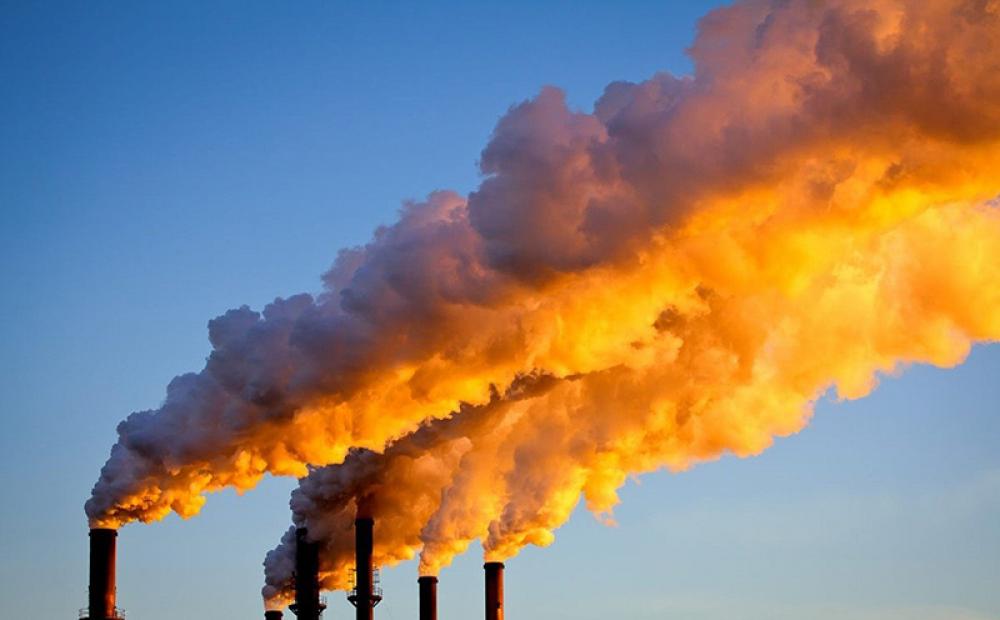Just Earth News | @justearthnews | 13 Nov 2024, 11:56 pm Print

A new research is showing carbon emissions have touch record highs in 2024. Photo Courtesy: Pixabay
A new research has shown global carbon emissions from fossil fuel have reached a record high figure in 2024.
The research was conducted by the Global Carbon Project science team.
The 2024 Global Carbon Budget projects fossil carbon dioxide (CO 2) emissions of 37.4 billion tonnes, up 0.8% from 2023.
Despite the urgent need to cut emissions to slow climate change, the researchers say there is still “no sign” that the world has reached a peak in fossil CO2 emissions.
With projected emissions from land-use change (such as deforestation) of 4.2 billion tonnes, total CO2 emissions are projected to be 41.6 billion tonnes in 2024, up from 40.6 billion tonnes last year, read the University of Exeter website.
Over the last 10 years, fossil CO2 emissions have risen while land-use change CO2 emissions have declined on average – leaving overall emissions roughly level over that period.
This year, both fossil and land-use change CO2 emissions are set to rise, with drought conditions exacerbating emissions from deforestation and forest degradation fires during the El Niño climate event of 2023-2024.
With over 40 billion tonnes released each year at present, the level of CO2 in the atmosphere continues to rise – driving increasingly dangerous global warming.
The research team included the University of Exeter, the University of East Anglia (UEA), CICERO Center for International Climate Research, Ludwig-Maximilian-University Munich, Alfred-Wegener-Institut and 80 other institutions around the world.
“The impacts of climate change are becoming increasingly dramatic, yet we still see no sign that burning of fossil fuels has peaked,” said Professor Pierre Friedlingstein, of Exeter’s Global Systems Institute, who led the study.
“Time is running out to meet the Paris Agreement goals – and world leaders meeting at COP29 must bring about rapid and deep cuts to fossil fuel emissions to give us a chance of staying well below 2°C warming above pre-industrial levels.”
Professor Corinne Le Quéré, Royal Society Research Professor at UEA’s School of Environmental Sciences, said: “Despite another rise in global emissions this year, the latest data shows evidence of widespread climate action, with the growing penetration of renewables and electric cars displacing fossil fuels, and decreasing deforestation emissions in the past decades confirmed for the first time.”
Dr Glen Peters, of the CICERO Center for International Climate Research in Oslo, said: “There are many signs of positive progress at the country level, and a feeling that a peak in global fossil CO2 emissions is imminent, but the global peak remains elusive.
“Climate action is a collective problem, and while gradual emission reductions are occurring in some countries, increases continue in others.
“Progress in all countries needs to accelerate fast enough to put global emissions on a downward trajectory towards net zero.”
Professor Friedlingstein added: “Until we reach net zero CO2 emissions globally, world temperatures will continue to rise and cause increasingly severe impacts.”
How long until we pass 1.5°C of global warming?
This study estimates the remaining “carbon budget” before the 1.5°C target is breached consistently over multiple years, not just for a single year. At the current rate of emissions, the Global Carbon Budget team estimates a 50% chance global warming will exceed 1.5°C consistently in about six years.
This estimate is subject to large uncertainties, primarily due to the uncertainty of the additional warming coming from non-CO2 agents (e.g., CH4, N2O, aerosols).
However, it’s clear that the remaining carbon budget – and therefore the time left to meet the 1.5°C target and avoid the worst impacts of climate change – has almost run out.
- Why are scientists warning about surging glaciers? All details inside
- Mass coral bleaching to hit Great Barrier Reef most years, study reveals
- Global water bankruptcy shock: Why the planet’s most precious resource Is collapsing
- Would you pay $1 million to stay on the moon? This company thinks so
- A historic UN deal is about to transform how the world protects its oceans





-1763561110.jpg)
